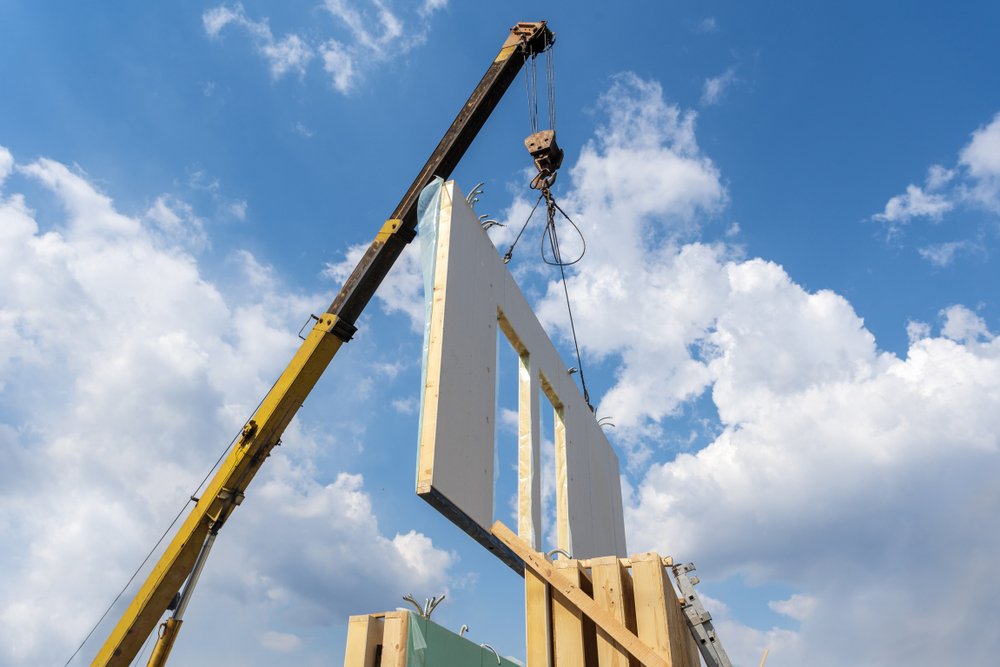A Guide to Energy Efficient Modular Homes
There are a number of factors that you must keep in mind when looking for the perfect new home, including the price, square footage, and location.
Another factor that more and more homebuyers are starting to consider as they search for a new home is energy efficiency. If you want to live a greener lifestyle, purchasing a modular home might be the solution. Here’s what you need to know about energy efficient modular homes:
What Are Energy Efficient Modular Homes?
Most homes are constructed on-site, which means everything from the foundation to the walls is built and assembled on the home’s final site.
But a modular home is built in a factory, not on-site. Each of a modular home’s sections is assembled off-site and then transported to the home site via a flatbed truck. Once the pieces arrive, a builder puts them together according to the home’s design plan.
A modular home is not the same as a mobile home. A mobile home can be moved from one place to another, but a modular home cannot be relocated once all of its sections, or modules, have been put together on-site.

What Are the Benefits of Energy Efficient Modular Homes?
There are a number of different benefits to purchasing a modular home rather than a traditional site-built home, including:
- Less waste. Building and assembling a modular home produces far less waste than building a site-built home. This is because modular homes are built according to specific guidelines using prefabricated trusses, frames, and other components. This drastically reduces the amount of waste that is produced in the construction of these homes.
- Speed. Modular homes are built in factories that are stocked with building materials, so you won’t need to wait while your contractor orders the supplies they need to finish construction. Furthermore, the construction of these homes will never be delayed by bad weather since it takes place completely indoors.
- Better insulated. Most modular homes are designed with 2×6 framing, which means there is more space for insulation in the walls. Adding more insulation to the walls will keep you warmer in the winter and cooler in the summer, so you won’t need to rely as heavily on your heating and cooling system. This will lead to lower utility bills year-round.
- Stronger structures. Modular homes may be structurally stronger than traditional site-built homes. One study found that modular homes could actually withstand stronger hurricane-strength winds than traditional site-built homes.
- Environmentally friendly materials. Builders typically use eco-friendly materials such as FSC certified timber and recycled materials to construct modular homes. However, these materials may not be used to build a traditional on-site home.
- Fewer air leaks. In many homes, air escapes through tiny cracks and holes around the windows, doors, and electrical outlets. These tiny air leaks will force your heating and cooling system to work harder to keep you comfortable, which will drive up your electric bill. But modular homes tend to have fewer air leaks. This is because the manufacturers can seal problem areas around the windows, doors, and outlets that other site builders typically will not be able to reach. Sealing these areas could lead to lower utility bills in a modular home.
- Precise construction. Fewer errors are made during the construction of a modular home since manufacturers rely on computer-aided design technology. This ensures that the design plans are closely followed so the final product is built according to exact specifications.
Why Are Energy Efficient Modular Homes Important?
Living in an energy efficient home—regardless of whether or not it is a modular home—is important for several reasons.
An energy efficient home uses less energy than a traditional home, so living in an energy efficient home can drastically reduce your utility bills. Lower utility bills isn’t the only reason why energy efficient homes are important.
The Environmental Protection Agency (EPA) estimates that buildings account for nearly 40% of the country’s energy consumption and 68% of electricity consumption. The EPA also reports that buildings account for 38% of carbon dioxide emissions released in the U.S. These harmful emissions are the leading cause of climate change, which has the potential to cause immeasurable damage to the global environment.
But energy efficient homes produce fewer carbon dioxide emissions than traditional homes. So by living in an energy efficient modular home, you can do your part to reduce carbon emissions and protect the environment. If you are thinking about purchasing a new house, consider investing in a modular home so you can experience the many benefits of living a more energy efficient lifestyle!


